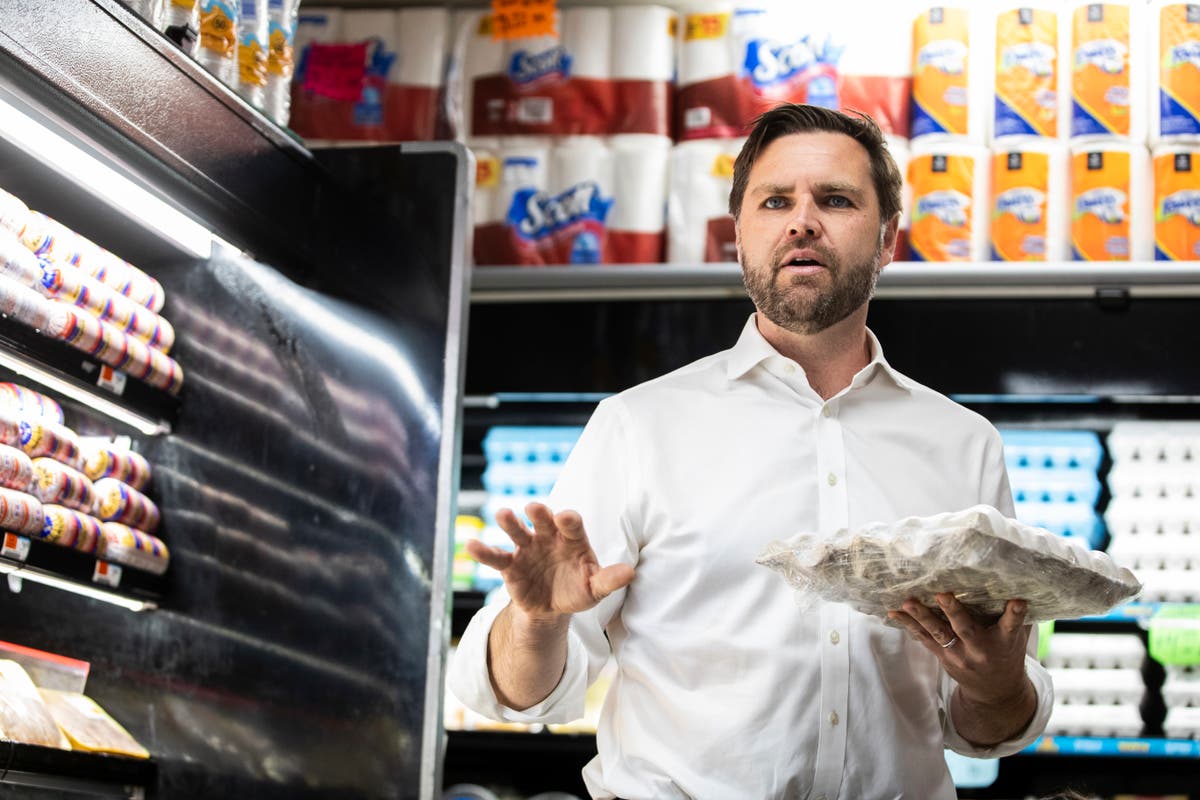JD Vance was roundly mocked online over a trip to the supermarket where he bemoaned the steep price of eggs — and botched the photo opp.
The Republican vice presidential nominee stopped by a supermarket in Reading, Pennsylvania, with his sons over the weekend to illustrate how grocery prices have been impacted by “Kamala Harris’s policies” when he claimed a dozen eggs cost $4.
The problem? When footage of the visit emerged, Vance was quickly called out by viewers who spotted the price tag of a dozen eggs behind him was actually $2.99.
🗳️ Register to vote: https://vote.gov/



deleted by creator
OK, how many chickens are required before it becomes an industrial production, and not just hobby level?
Is it less safe to have a few hundred than a dozen? The answer is obviously yes. So the problem claimed in the post I responded to, exist with everything above hobby level production.
So I stand by the argument as valid. And the post I responded to as naive.